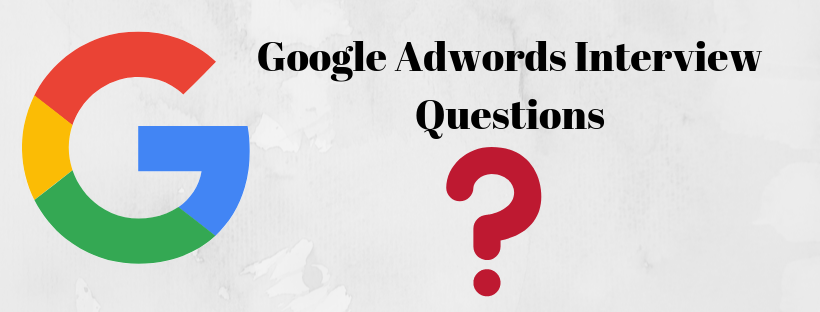1. What are some of the responsibilities of an SEO Manager?
I believe the responsibilities of an SEO manager encompass:
- Leading and executing SEO campaigns or projects aimed at enhancing the website’s search engine ranking.
- Analyzing, monitoring, and reporting on the performance of these campaigns or projects.
- Optimizing the website’s landing pages.
- Developing and implementing a content strategy.
- Conducting keyword research.
Based on my experience, I’ve observed several common SEO mistakes that can hinder a website’s performance:
- Not Creating Unique Content
- Keyword Stuffing
- Poor Quality Backlinks
- Ignoring Technical SEO
- Neglecting Mobile Optimization
- Not Monitoring Performance
3. Have you ever received a link penalty? If yes, what have you done to fix it?
Yes, it was a manual link penalty imposed by Google for one of the resource blogs on our website. This particular blog was among our best-performing ones. Upon analysis, we discovered that several spam websites had used our links as backlinks, indicating a potential negative SEO campaign against our webpage. We promptly submitted a correction request email to Google, and after a thorough review, the penalty was lifted after five weeks.
4. What does cross-linking mean, and what function does it serve?
Cross-linking is the process of linking one web page to another, including linking pages within the same website. The goal is to connect relevant content and drive quality traffic. For instance, in an article, you might link statistics to the original research source. This not only avoids plagiarism but also enhances the credibility of your content.
5. What is keyword stemming and why is it important?
Keyword stemming is a valuable SEO strategy that involves modifying a base keyword by adding prefixes or suffixes to create variations. This technique helps to incorporate additional relevant keywords into the content or webpage without resorting to keyword stuffing. For example, if the base keyword is “interest,” stemming can result in variations like “interesting” or “interested.” By utilizing keyword stemming, websites can enhance their content’s relevance and depth, ultimately improving their search engine rankings.
6. If your website ever hit by an Google Update, What steps you will take?
If my website were to be affected by a Google update, I would take the following steps:
-
Understand the Update: Research and understand the nature of the Google update. This includes understanding the specific changes Google has made and how they might impact my website’s visibility and rankings.
-
Assess the Impact: Monitor my website’s performance, including traffic, rankings, and conversions, to assess the impact of the update. This would involve comparing data before and after the update to identify any significant changes.
-
Identify Issues: Conduct a thorough audit of my website to identify any issues that might have caused a drop in rankings or visibility. This could include technical issues, content quality issues, or backlink issues.
-
Implement Fixes: Based on the findings of the audit, implement necessary fixes to address any issues identified. This could involve improving website speed, enhancing content quality, or disavowing harmful backlinks.
-
Monitor and Adapt: Continuously monitor my website’s performance and adapt to any further changes or updates from Google. This might involve ongoing optimization efforts to ensure my website remains compliant with Google’s guidelines.
-
Seek Expert Advice: If necessary, seek advice from SEO experts or consultants to help navigate the impact of the Google update and implement effective strategies to recover and improve my website’s performance.
By taking these steps, I would aim to mitigate the impact of a Google update on my website and work towards improving its visibility and rankings over time.
7. What is Google Fetch? What are its functions?
Fetch as Google is a feature in Google Search Console that enables website owners to submit URLs for indexing. It allows you to see how Googlebot, Google’s web crawling bot, accesses and renders your web pages. When you fetch a URL, Googlebot will visit the page and display how it would appear in a search result. This tool provides insights into how Google sees your page, including any potential issues with crawling, indexing, or rendering.
The Fetch tool is particularly useful for diagnosing and resolving issues that could prevent your pages from being properly indexed or displayed in search results. For example, if you recently updated your website or published new content, you can use Fetch to ensure that Googlebot can access and index the new pages. Additionally, Fetch can help you identify and fix any technical issues that may be impacting your site’s visibility in Google search results.
Overall, Fetch as Google is a valuable tool for website owners and SEO professionals to ensure that their pages are properly indexed and displayed in Google search results.
8. What is Hummingbird in Google?
The Hummingbird update to Google’s algorithm marked a significant shift from traditional keyword-based search to a focus on understanding the intent behind search queries. This change aimed to improve the relevance of search results by better understanding the context and meaning of user searches when ranking web pages.
9. What do you know about Google knowledge graph?
Google Knowledge Graph is Google’s knowledge base, a database of information used to enhance its search engine’s results with semantic-search information gathered from a wide variety of sources. The Knowledge Graph is used to provide authoritative and relevant information to users quickly.
The Knowledge Graph is not directly visible to users, but its results are displayed in the form of Knowledge Graph Panels, which appear on the right-hand side of search results for certain queries. These panels contain summarized information about the search query, such as key facts, images, related topics, and links to additional sources.
In summary, while the Knowledge Graph itself is a behind-the-scenes database, its results are presented to users in the form of Knowledge Graph Panels, providing quick and relevant information directly in search results.
10. What are rich snippets and how can websites optimize their content to appear as rich snippets in search engine results?
Rich snippets are descriptive text snippets displayed above organic search results, providing a preview of the content. They may also feature images. While not directly tied to SEO, rich snippets can enhance visibility and attract more traffic to the content. Google Search Console can be leveraged to generate these rich snippets.
Optimizing for rich snippets involves structuring your content in a way that search engines can easily understand and display as a rich snippet. This includes using schema markup to provide context to your content, optimizing your content to answer specific questions or provide detailed information, and ensuring that your website’s technical aspects, such as page speed and mobile-friendliness, are optimized for search engines.
11. Which companies would benefit from using the site links rich snippet?
The site links rich snippet is particularly advantageous for companies with extensive websites or a hierarchical structure. This snippet enhances visibility by showcasing multiple links within a search result, facilitating swift navigation to specific website sections. Additionally, it bolsters credibility and enhances the overall user experience.
12. What is an SEO audit, and how do you perform one?
An SEO audit is a thorough assessment of the factors influencing a website’s search engine ranking. It involves analyzing on-page and off-page SEO, as well as technical aspects. The purpose is to identify areas for improvement to enhance the website’s health and user experience, ultimately leading to better search engine rankings.
The audit examines various aspects, including content, keywords, backlinks, site structure, and technical elements like site speed and mobile-friendliness. It helps uncover issues that may be affecting the website’s performance in search results and provides recommendations for improvement.
Regular SEO audits can ensure that a website is optimized for search engines and provides a positive user experience, leading to higher rankings and increased organic traffic.
13. What do we understand by Link Audit, and how often should we perform it?
A link audit is the process of evaluating all the links pointing to your website, known as backlinks. It involves analyzing the quality and relevance of these external links to ensure they comply with SEO best practices. Many SEO experts conduct link audits before they begin building backlinks to understand the current link profile and identify areas for improvement.
Due to the complexity and time-consuming nature of link audits, it is recommended to perform a thorough audit at least once a year. This helps ensure that your backlink profile remains healthy and can positively impact your website’s SEO performance.
14. What are the latest updates by Google that impacted SEO? And how to recover from their impact?
-
Page Experience Update: Google introduced this update to incorporate user experience metrics, such as Core Web Vitals (loading speed, interactivity, and visual stability), into its ranking criteria. To recover from its impact, focus on optimizing these metrics on your website.
-
BERT Update: BERT (Bidirectional Encoder Representations from Transformers) is a natural language processing algorithm used by Google to better understand search queries. To recover from its impact, ensure your content is well-written, relevant, and provides valuable information to users.
-
Mobile-First Indexing: Google now primarily uses the mobile version of a website for indexing and ranking. To recover, ensure your website is mobile-friendly, with responsive design and fast loading times on mobile devices.
-
Core Updates: Google regularly releases core updates to improve search results. These updates can impact rankings across various industries and niches. To recover, focus on providing high-quality, relevant content and improving overall user experience on your website.
To recover from the impact of these updates, focus on providing a great user experience, creating high-quality, relevant content, and ensuring your website is technically sound and mobile-friendly. Regularly monitor your website’s performance and search engine rankings, and make adjustments as needed based on the latest SEO best practices.
15. Even if you try every conventional SEO method, your website doesn’t rank higher in the search engine, what will you do? Mention some unconventional SEO methods you have used.
Firstly, I would re-check the keywords and add more relevant keywords to the content. I’d experiment with different titles and meta descriptions to enhance visibility and relevance.
Next, I’d use Google’s advanced search to understand competitor strategies. Analyzing their keywords and content tactics can help identify opportunities for improvement.
I’d also monitor the performance of my existing links and seek opportunities to acquire high-quality backlinks from authoritative sources. This can significantly impact my website’s SEO.
Checking for any penalties affecting my website using Google Search Console is crucial.
Addressing any issues promptly can improve my site’s performance.
I’d ensure my content is of high quality, relevant, and valuable to my audience. Updating and refreshing older content can improve its SEO performance.
Finally, I’d pay close attention to technical aspects such as site speed, mobile-friendliness, and structured data. These factors can greatly influence my website’s search engine rankings.
Implementing these strategies and continuously monitoring and optimizing my website can enhance its SEO performance and visibility in search engine results pages.
16. How can you use content marketing for SEO?
Content marketing is indeed crucial for achieving successful SEO. High-quality content that is optimized with relevant keywords and includes internal and external links can significantly improve a website’s visibility and reach a larger audience.
Content marketing can take various forms, including text-based articles, videos, emails, podcasts, and more. Each format has its unique advantages and can be used to engage with different segments of your target audience.
By creating valuable, informative, and engaging content, you can attract more visitors to your website, improve your search engine rankings, and establish your brand as a trusted authority in your industry.
17. How can social media help with SEO?
Social media can indirectly impact SEO in several ways:
-
Increased Website Traffic: Sharing content on social media can drive traffic to your website. The more traffic your site receives, the higher its potential to rank well in search engine results.
-
Improved Brand Visibility and Authority: Active engagement and sharing on social media can increase brand visibility and establish your brand as an authority in your industry. This can lead to more branded searches and higher organic search rankings.
-
Social Signals: While the direct impact of social signals on SEO is debated, there is evidence to suggest that social signals (such as likes, shares, and comments) can influence search engine rankings.
-
Link Building: Social media can be a valuable tool for link building. When you share high-quality content on social media, there’s a chance that other websites will link back to your content, which can improve your site’s SEO.
-
Local SEO: For businesses with physical locations, social media can help improve local SEO. By engaging with local audiences and sharing location-specific content, you can increase your visibility in local search results.
Overall, while social media may not have a direct impact on SEO, it can play a valuable role in driving traffic to your website, improving brand visibility and authority, and potentially influencing search engine rankings through social signals and link building.
18. How can SEO and PPC together help you get better results?
SEO and PPC are complementary strategies that, when used together, can yield enhanced results and higher rankings. PPC advertisements are paid promotions that enable websites to appear at the top of search results pages.
By integrating PPC with a robust SEO strategy, businesses can effectively occupy a significant portion of SERPs. This approach allows web pages to rank highly in organic search results, in addition to appearing through PPC ads.
Moreover, utilizing both SEO and PPC simultaneously provides a comprehensive approach to capturing audience attention at different stages of the buying cycle. While SEO helps in establishing long-term organic visibility and credibility, PPC can deliver immediate results and drive targeted traffic to specific landing pages or promotions. This dual strategy not only maximizes visibility and traffic but also allows for greater flexibility and control over the overall marketing efforts.
19. How can one optimize a website that has millions of pages?
To optimize a website with a robust backend architecture, an advanced SEO tool with strong analytical capabilities is essential. SEO plugins can be used to analyze pages and generate preliminary analysis reports. Once the report is available, the following optimization steps can be taken:
-
Removing Duplicate Content: Identify and remove duplicate content to avoid penalties from search engines and improve the overall quality of the website.
-
Adding Important Keywords in Headers and META Tags: Incorporate relevant keywords in headers (H1, H2, etc.) and META tags (title tag, meta description) to improve the visibility of the website for those keywords.
-
Designing a Strong Internal Linking Structure: Create a strong internal linking structure to improve navigation and help search engines understand the hierarchy and relevance of content on the website.
By following these optimization steps, the website can improve its search engine rankings and attract more organic traffic.
20. What are some of the SEO that you cannot control?
The most significant factor affecting SEO, which is beyond our control, is the search engine itself, particularly Google. Google’s algorithms are not publicly disclosed, making it challenging to understand precisely how they work. SEO experts have largely determined best practices through experimentation and observation.
Google’s preference for established websites over new ones further complicates SEO efforts. This
means that optimizing a new website to rank well can be challenging. It often requires a team of experienced individuals to develop and implement the best SEO strategy.
Despite these challenges, there are fundamental SEO principles that can help improve a website’s visibility and rankings. These include creating high-quality, relevant content, optimizing on-page elements such as title tags and meta descriptions, and building high-quality backlinks from reputable sources. By focusing on these core principles and staying abreast of industry trends, businesses can improve their SEO performance over time.
21. How do you create an SEO strategy?
Creating an SEO strategy varies depending on the project, but generally, I start by understanding the target audience and defining short and long-term SEO goals. This is followed by competitor analysis, keyword research, and content planning. Once these steps are completed, I determine the implementation timeline.
Understanding the target audience helps tailor the SEO strategy, while setting clear goals ensures focus and trackability. Analyzing competitors provides insights for improvement, and keyword research helps optimize content. Content planning ensures relevance and value, and the implementation timeline ensures timely execution of tasks. This comprehensive approach helps create an SEO strategy that is effective and goal-oriented.
22. What are some of the important KPIs to consider for SEO?
In SEO, key performance indicators (KPIs) such as organic traffic growth, keyword rankings, conversion rates, bounce rates, backlink quality, and engagement metrics (like time on page and pages per session) are vital for measuring success. These metrics help assess website visibility, user engagement, and overall performance, enabling businesses to optimize their SEO strategies for better results.
23. How do you stay updated with the latest updates in the latest SEO-related trends?
To stay abreast of the ever-evolving landscape of SEO, I actively engage with various sources of industry knowledge. This includes regularly following blogs, subscribing to newsletters, and frequenting reputable websites such as NeilPatel.com and SEMrush.com. These platforms offer valuable insights into emerging trends, algorithm updates, and best practices in the field of SEO.
Additionally, I actively participate in discussions with industry professionals on networking platforms. These discussions provide a forum to delve deeper into evolving trends, share experiences, and gain valuable insights from peers. By combining insights from these sources, I ensure that my SEO strategies remain current and effective in meeting the dynamic challenges of the digital landscape.
24. How did you get to learn SEO?
In my previous roles, I had the opportunity to actively participate in SEO-focused campaigns, allowing me to gain practical insights into various aspects of SEO. Additionally, I completed an SEO course from (name the source), which provided me with a deeper understanding of search engine algorithms and introduced me to emerging SEO strategies. This combination of hands-on experience and formal education has equipped me with a comprehensive skill set in SEO.
25. What SEO tools you are most comfortable with?
While there are numerous tools available in the market, my preferred choices for SEO include Ahrefs, Semrush, Moz, Google Keyword Planner, and Google Search Console.
26. How do you know if a SEO Campaign is successful?
In my opinion, the most straightforward method to gauge the success of a SEO campaign is by assessing the traffic directed to the target webpage or by evaluating the conversion rate post-campaign implementation.
27. What is the toughest challenge you’ve faced in your SEO career, and how did you overcome it?
One of the most challenging experiences in my SEO career was managing a major website migration under tight deadlines. To tackle this challenge, I developed a meticulous plan for the migration process, ensuring clear communication and coordination with web developers and content creators. I conducted thorough testing at each stage and closely monitored the post-migration performance. Despite encountering some unexpected issues, we successfully completed the migration without significant disruptions and even achieved improved search rankings as a result.
28. What approach would you take to conduct an SEO questionnaire with a client?
To conduct an SEO questionnaire with a client, I’d start by gaining insights into their goals, target audience, industry, and current SEO status. I’d then design a thorough questionnaire covering website performance, keyword strategy, content planning, and competitor analysis. This data, along with an initial SEO audit, would guide me in crafting a customized SEO strategy aligned with the client’s goals and requirements.
29. What is your previous experience in managing an SEO or marketing team?
Throughout my tenure as an SEO manager spanning ‘x’ years, I have effectively managed teams ranging in size from ‘a’ to ‘b’.
30. How do you feel about search engines selling search rankings?
I firmly advocate for search engine rankings to be earned through ethical SEO practices based on merit. Buying search rankings not only compromises the integrity of search results but also undermines long-term sustainability and erodes user trust. SEO professionals should prioritize providing valuable content and meeting user needs to achieve sustainable, organic growth.




